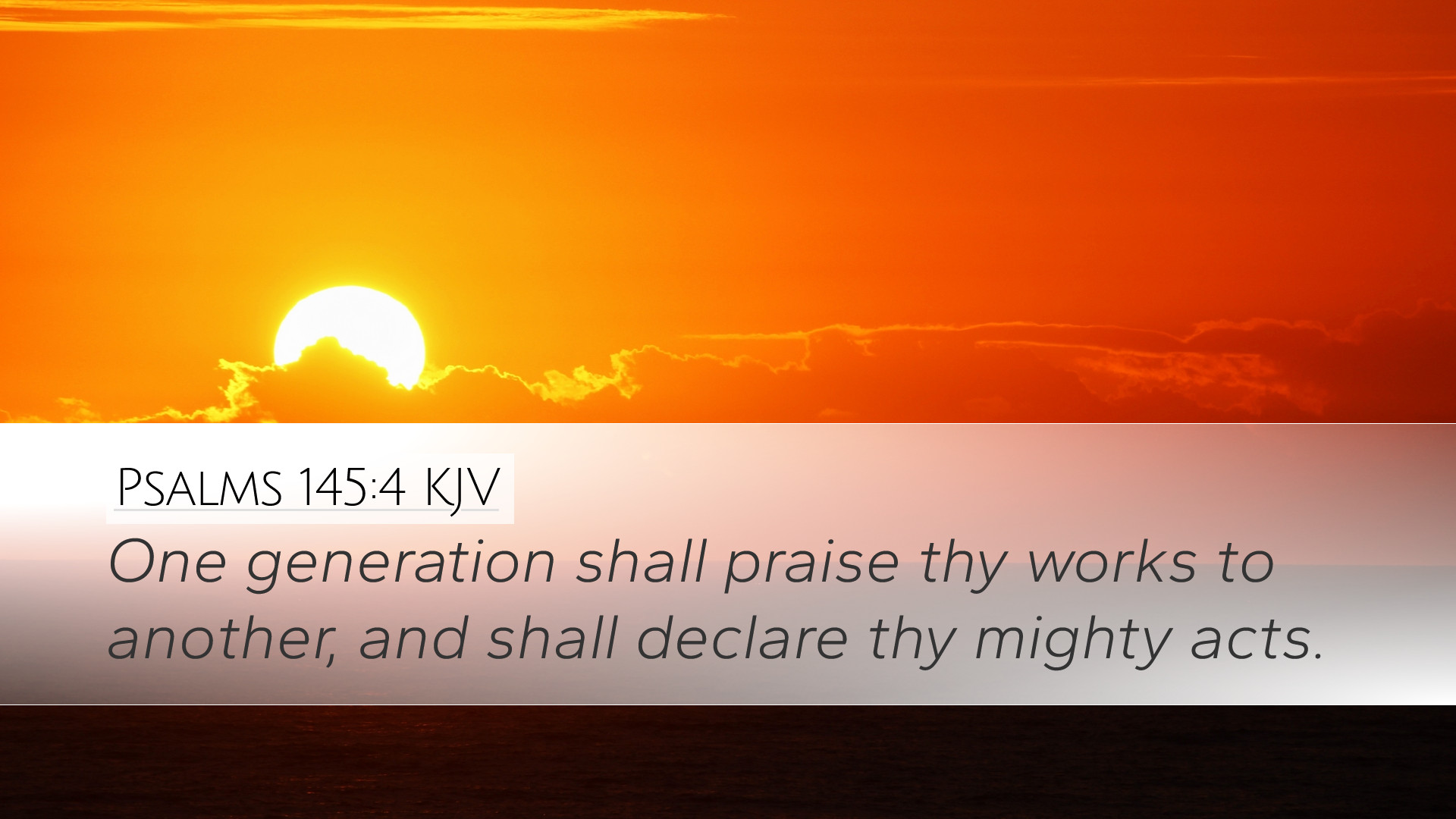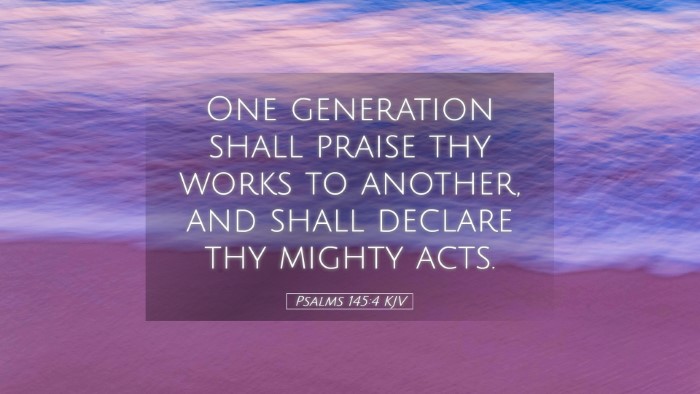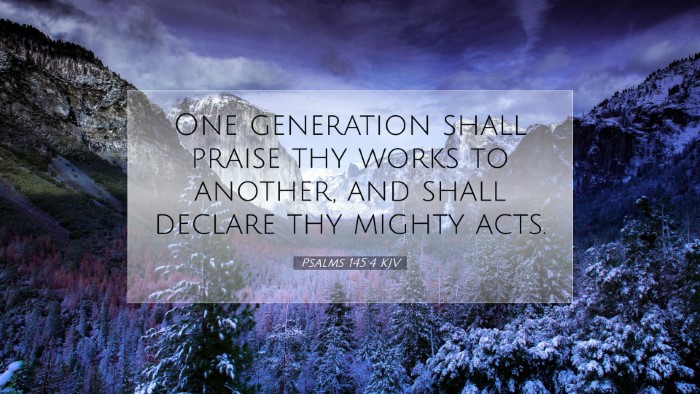Psalms 145:4 Commentary
Verse: "One generation shall praise thy works to another, and shall declare thy mighty acts."
Introduction
The Psalmist here expresses a profound truth about the continuity of worship and thanksgiving across generations. This verse encapsulates the essence of the communal and intergenerational aspect of faith, emphasizing the importance of sharing God's mighty deeds.
Exegesis of Psalms 145:4
Psalms 145 is a hymn of praise, attributed to David, and serves as an acrostic psalm which reflects the character and works of God. This verse highlights the role of the community in the act of worship.
Insights from Public Domain Commentaries
Matthew Henry
Matthew Henry emphasizes the significance of one generation conveying the glories of God to the next. He points out that the acts of God should not only be acknowledged but celebrated within familial and communal contexts. He suggests that it is not merely a duty but a privilege for each generation to recount the faithfulness of God to those who will follow, ensuring that the lineage of faith remains vibrant and alive. This generational responsibility fosters a living tradition of testimony and praise.
Albert Barnes
Albert Barnes provides a more theological perspective, underscoring that the "mighty acts" of God refer to His works in creation, providence, and redemption. According to Barnes, the declaration of God's works serves as an edification tool for the younger generation. Each generation is tasked with the important role of remembering and transmitting the history of God's faithfulness, effectively ensuring that the knowledge of God is perpetuated through time. He encourages the faithful to be proactive in sharing personal testimonies and scriptural truths to stimulate worship and reverence for God.
Adam Clarke
In the commentary by Adam Clarke, he reflects on the concept of praise being a universal language among those who acknowledge God. Clarke notes that this verse illustrates a sense of duty as well as joy in sharing the works of God with future generations. He suggests that the declaration of God’s might extends beyond mere recounting to include teaching and demonstration through our lives. Clarke posits that when one generation praises, it inspires another to do the same and creates an atmosphere of communal reverence and worship.
Theological Implications
This verse invites deep theological reflection. It underscores the covenantal nature of faith, where each generation builds upon the legacy of the previous one. The act of praising and declaring God's works is not only a means of remembrance but is also integral to spiritual formation and community identity.
- Intergenerational Faith: The verse speaks to the importance of nurturing faith in younger generations and highlights the responsibility believers have to pass down their spiritual heritage.
- The Nature of Praise: Praise is portrayed as an active, communal, and ongoing response to God’s mighty acts, reinforcing the idea that faith is lived and expressed in community.
- God's Mighty Acts: Understanding these acts includes acknowledging and celebrating not only historic events like creation and redemption but also personal encounters with God's work in our lives.
Practical Applications for Pastors and Leaders
This verse provides a framework for ministry and teaching:
- Teaching the Faith: Leaders should emphasize the importance of teaching about God’s works in their sermons and teachings, ensuring that young people are equipped to know and share their faith.
- Encouraging Testimonies: Create spaces within the church for individuals to share their testimonies and stories of God's faithfulness, reinforcing communal bonds and shared faith experience.
- Involving Families: Encourage families to engage in spiritual practices that promote intergenerational dialogue about God’s faithfulness, such as family devotions, shared worship experiences, and community service.
Conclusion
Psalms 145:4 serves as a powerful reminder of the vital role that intergenerational worship plays in the life of believers. Through the insights of esteemed commentators like Henry, Barnes, and Clarke, we're encouraged to actively participate in this generational cycle of praise and declaration. The legacy of faith is built not only through individual belief but through shared experiences that inspire and nurture the faith of future generations.


